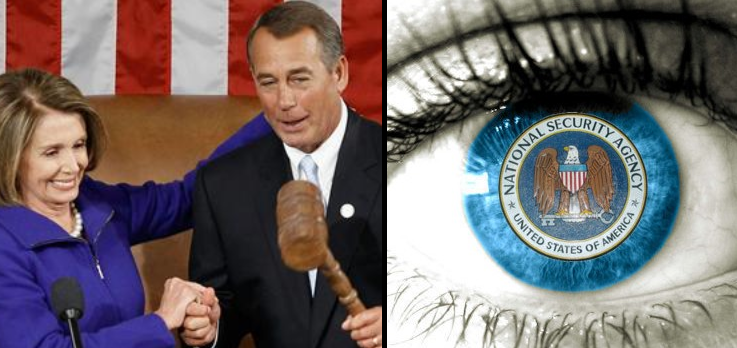
By Carey Wedler
Activist Post
Following the abominable shooting of Parisian journalists at Charlie Hebdo, United States politicians and officials are predictably claiming that mass surveillance of citizens is the solution to terrorism.
Former CIA director Michael Hayden told MSBNC:
…metadata doesn’t look all that scary this morning, and I wouldn’t be surprised if the French services pick up cell phones associated with the attack and ask the Americans, ‘where have you seen these phones active globally?’
GOP lawmakers have also jumped on the NSA bandwagon since the shooting on Wednesday. Senator Bob Corker, chairman of the Senate Committee on Foreign Relations, said:
I think events like [the shooting in Paris] and people’s recognition that the only way to keep those from happening is through outstanding intelligence-gathering.
Senator Lindsay Graham also chimed in, dramatically claiming:
I fear our intelligence capabilities, those designed to prevent such an attack from taking place on our shores, are quickly eroding. I believe our national security infrastructure designed to prevent these types of attacks from occurring is under siege.
Mass data collection and other NSA surveillance, both domestic and international, failed to stop terrorist attacks such as the Boston Marathon bombing, the attack on the United States embassy in Benghazi in 2012, or the “domestic terrorist,” cop killer Eric Frein. It also failed in France.
all emails, text messages, telephone records, Facebook messages and Twitter interactions were stored for years. France’s security services also gather up vast amounts of metadata, the information that shows who, where and how people communicate but not the content.
That was not enough to stop the Hebdo attacks, but neither were the French government’s other surveillance tactics.
One law passed in 2013 that went into effect only this year was slipped into a military spending bill. At the time of its passage, the New York Times reported that it defined appropriate surveillance of phone records, Internet history, location data, email, and other electronic communications:
The law provides for no judicial oversight and allows electronic surveillance for a broad range of purposes, including ‘national security,’ the protection of France’s ‘scientific and economic potential’ and prevention of ‘terrorism’ or ‘criminality.’

Though it seemed shocking, proponents argued that opponents had no reason to be indignant, for France had passed a similar law 23 years earlier. The 2013 version merely strengthened it.
France was still unable to prevent this week’s tragedy.
Further, it was reported that the two brothers officially accused of the shootings, Cherif and Said Kouachi, were considered “low risk threats.” They were already under surveillance but had been downgraded in previous years. How, then, could expanding or maintaining mass spying powers on domestic citizens, as conservatives advocate, make a difference if the government cannot even keep track of those classified as threats, no matter the level?
The brothers were on the United States no-fly list and on the FBI’s terrorism watch list. This reality was somehow lost in translation with the French government, who in the midst of criticizing the U.S. for spying on the French in 2013, maintained that they worked closely with the U.S. to prevent terrorism. At the time, French Foreign Minister Laurent Fabius chastised the American government:
We fully agree that we cooperate to fight terrorism. It is indispensable. But this not justify that personal data of millions of our compatriots are snooped on.
Neither French or American spying (or the sum of their parts) were able to prevent yet another terrorist attack. This incompetency is a recurring characteristic of government agencies who ask taxpayers to sacrifice freedom for security but consistently fail to deliver on their end of the deal.
It is predictable that US lawmakers and zealots would offer the unsubstantiated argument that mass surveillance makes people safer. By playing on the fear invoked by nonstop media fearmongering and coverage of tragedies, they are able to manipulate citizens into accepting further infringements of their rights.
The narrative, however, is growing tired, and with no proof that such infringements have any positive effect, it will hopefully (eventually) fade away.
Note*:It is worth noting that the Kouachi brothers first became radicalized with the U.S.-led invasion of Iraq and the torture committed at Abu Ghraib. While murdering innocent civilians and journalists is never justified, perhaps it would be wise for the U.S. to focus more on scaling back its violent, corrupt military that victimizes innumerable people and less on spying on even more innocents.










Sign up on lukeunfiltered.com or to check out our store on thebestpoliticalshirts.com.